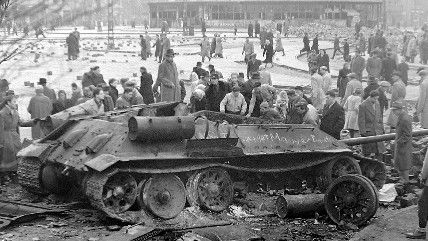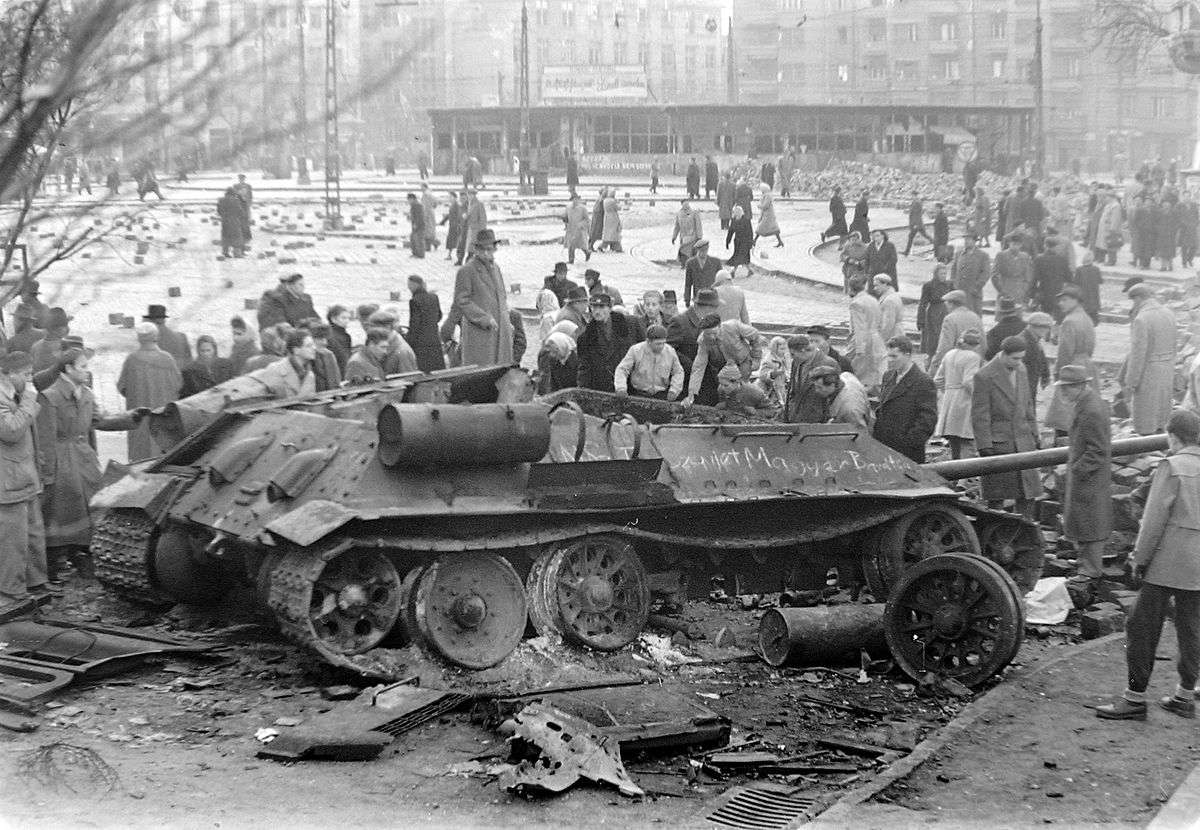When the Russians Played the Olympic Villain For a Lot More Than Just Doping
1956's "Blood in the Water" match between Hungary and the Soviet Union brought war to the pool.


It was just over a decade after World War II and the people of Hungary had had quite enough of their "liberators" — the Soviet Union — and the repressive communist puppet state they installed after routing the Nazis.
Massive (but mostly peaceful) protests in October 1956 were met with a violent reaction by state police and the Hungarian citizenry fought back. In about a week the violence had ebbed, Hungary's reformist prime minister Imre Nagy — who had been sacked by Moscow about a year earlier — was back in office, and it seemed the revolution had been won.
As I wrote in a new column for The Week:
It was during this uneasy period of calm that part of the Hungarian Olympic team left the country on a three-week nautical journey to Melbourne aboard a Soviet ship (the rest of the national team would later fly out of Prague).
When the team arrived in Australia, they learned what had become of their revolution: It had been brutally crushed by the Soviets. Over 3,000 of their countrymen were dead. A few days later, Nagy would be arrested, and later tried in secret, then executed for treason.
This is the atmosphere in which the Hungarian water polo team faced down the Soviet team at the Melbourne Games. When it comes to geopolitics colliding with sport at the Olympics, the match between the two water polo powerhouses — which would come to be known as "Blood in the Water" — made the U.S. hockey team's 1980 "Miracle on Ice" over the Soviet team resemble a Disney movie. (Indeed, they did make a Disney movie about that hockey game.)
The "Blood in the Water" match included such highlights as:
The Hungarians called the Soviets "dirty bastards," and the Soviets countered that they were traitors. Flailing submarine sucker-punches were thrown, kicks were deployed, but Hungary's strategy worked. The flustered Soviets faced a 4-0 deficit late in the match.
With just two minutes to go, star Soviet player Valentin Prokopov was goaded by one too many Slavic "your mama" jokes from Zador and rose from the water, viciously punching his Hungarian rival in the face.
For a tale of metaphorical Olympic battle from a time when the Russian team was cast as the villain because of the brutal actions of its government, rather than for allegations of widespread doping, read the whole column here.
